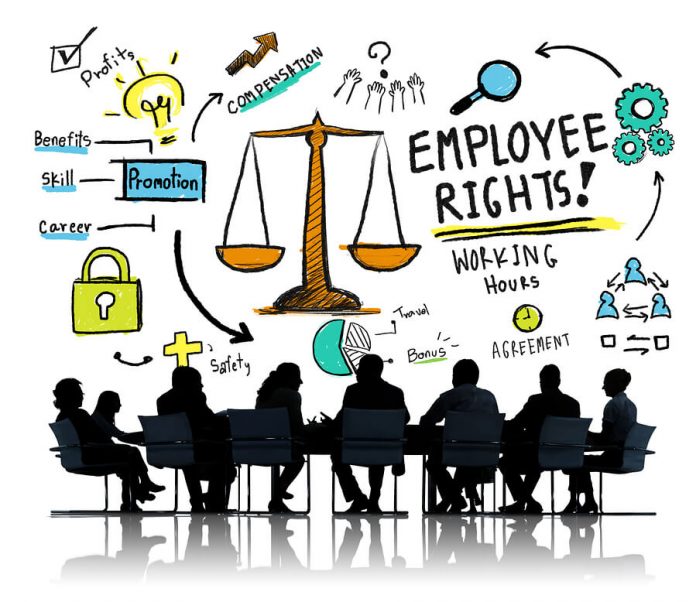This article is written by Abhishek Aditya who is pursuing Diploma in Labour, Employment and Industrial Laws (including POSH) for HR Managers from Lawsikho.
Table of Contents
Introduction
In a landmark judgment, in January of 2020, the High Court of Tripura ruled that ‘a government servant is not devoid of her right of free speech, a fundamental right.’ The Court did acknowledge that the expression of the right to speech is subject to curtailment in certain circumstances; nevertheless the judgment has significant implications concerning the right to freedom of expression for government employees. Before discussing those, let us first examine the facts of the case and the details of the judgment.
The Case-facts in-brief
Lipika Paul was an Upper-Divisional-Clerk in the Fisheries Department of Government of Tripura. Her conditions of service were governed by the Tripura Civil Services (Conduct) Rules, 1988. She was due to superannuate on 30.04.2018. Five days before the date of superannuation, her employer passed an order of suspension, because she had taken part in a political rally organized by a particular party on 31.12.2017. By this action, she was said to have violated Rule 5 of the Conduct Rules. Her post-retirement benefits were withheld pending the completion of the inquiry.
Subsequently, on 04.10.2018, a charge-sheet was served to Ms. Paul. The sole article of charge stated that she had “canvassed against a political party by making defamatory and indecent comments against political leaders who were contesting election from a recognized political party in the Assembly Election of 2018”. In her reply to the charge-sheet she denied all charges.
Thus the main charge against Ms. Paul was that she had participated in a political rally and that she had posted defamatory comments on her Facebook page against political leaders. The specific text of her post has been quoted in the judgment.
The Petition in the High Court
While the departmental inquiry in the case was still going on, Ms. Paul filed a writ petition on 25.11.2019 under Article 226. Her contention was that even if the alleged actions of taking part in a rally or of posting her comments on social media were true, those do not constitute misconduct or violation of Rule 5 of Conduct Rules.
In his counter to the petition, the Government Advocate argued that the petition has been filed prematurely as the departmental inquiry is yet to be completed. Whether her actions constitute misconduct or not will be established only in that inquiry. He argued that there is no reason for the Court to interfere at this stage.
Usually the courts would not intervene at this stage, as the departmental inquiry was yet to be completed. However, in the instant case, the Court chose to consider the petition on its merits. It reasoned that it would be futile to make the petitioner undergo a departmental inquiry if it could be established at this stage itself that her actions did not amount to any violation of Conduct Rules.
Rule 5 of the Conduct Rules
Rule 5 of Tripura Civil Services (Conduct) Rules, 1988 is titled ‘Taking part in politics and elections’. It has been derived from mutatis-mutandis from Rule 5 of Central Civil Services (Conduct) Rules, 1964. Inter-alia prohibits government employees from being a member of political parties or organizations. They are barred from canvassing or taking part in elections.
In the statement of imputation of her misconduct, Ms. Paul was stated to have taken part in politics by ‘participating’ in a political rally. By posting comments against some political leaders on her Facebook page, she was stated to have canvassed against them.
The Judgment
The Courts examined the charges in light of the above-mentioned Rule 5 of the Conduct Rules. It held that the employer had wrongly equated Ms. Paul’s ‘presence’ in the rally to her ‘participation’ in it. The Court thus drew a distinction between being merely physically ‘present’ and actively ‘participating’.
It reasoned that the presence of a person at a rally could be attributed to being a passive spectator, as rallies are common during elections. This neither indicates her political affiliation nor her political views. Thus mere presence in a political rally of Ms. Paul cannot be termed as participation by her.
With respect to her Facebook post, the court examined the content of the post, and found that it was a general post. There was nothing specific against any political party in the post. It cannot be held as ‘canvassing against any person in elections’. The court thus dismissed the charges of violation of Rule 5 of the Conduct Rules. Accordingly, the government was ordered to release the post-retirement benefits of Ms. Paul.
A Critical Analysis
The judgment has been hailed as guaranteeing government employees their right to freedom of expression on social media. Of particular significance are these words by the Ld. Judge
“As a Government servant, the petitioner is not devoid of her right of free speech, a fundamental right which can be curtailed only by a valid law. She was entitled to hold her own beliefs and express them in the manner she desired of course subject to not crossing the borders laid down in sub-rule (4) of Rule 5 of the Conduct Rules”
[Sub-rule (4) of Rule 5 pertains to the bar against government servants canvassing in elections.]
The Court emphasized that the right to freedom of speech and expression being a fundamental right [Article 19(1) (a)], cannot be curtailed unless by way of a valid law. Further, a government servant, like all citizens, can express them in any manner. Such expression should not however, amount to canvassing for or against a political party or person. Subject to the restraints placed by the Conduct Rules, she is free to hold her beliefs and to express them.
So what does Lipika Paul vs. State of Tripura contribute to the discourse on citizens’ rights in a democracy? For one, it clarifies that the right to post on social media, as a form of expression, is available to all citizens including government servants. Social media is a powerful tool, especially in a democracy. Its reach and potency are much higher than other traditional modes of mass media.
Social media popularity can easily boost or damage political fortunes. Facebook posts are said to have caused democratic uprisings (Arab Spring) in recent times. While it is unsurprising that political parties would like to exercise control over such powerful tools, sometimes they go overboard like in the case of Ms. Paul.
It must however be emphasized that in the case of Ms. Paul the content of her Facebook post was key to her being cleared of charges. The judge found that her post contained nothing against any particular person and was a general comment.
Thus the judgment must not be construed as a carte-blanche to government servants to express their political affiliations or to campaign for political parties. Their right to freedom of expression remains subject to their terms of employment (like the Conduct Rules).
Apart from Rule 5, government servants are barred from being connected with press or media (Rule 8), from criticism of government (Rule 9) or to join associations which are ‘prejudicial to the interests of the sovereignty and integrity of the country’ (Rule 6).
They cannot engage in demonstrations (Rule 7(i)) or accept gifts, except as provided in the Conduct Rules. They cannot undertake other employment (Rule 15) and there are restrictions even on investment in stock markets (Rule 16).
It is thus obvious that government servants have to carry themselves according to a different standard of conduct than other citizens. There are greater restrictions on their fundamental rights than on other citizens. However, these restrictions (such as the Conduct Rules) constitute a ‘valid’ set of employment terms, established by the due process of law-making. Such restrictions apply in all spheres, including social media.
On social media, though, many traditional boundaries have been blurred. A post on Twitter, may have greater reach than many newspapers. Does it amount to being connected with the press or media which a government servant is barred from? A ‘cover-photo’ on Facebook might end up with more ‘views’ than the attendance at a political rally.
Can it be construed as ‘demonstration’? Exactly what gets termed as ‘prejudicial to the interests of the sovereignty of the country’ is a function of which political party gets to decide. If it is not the one that the government servant is affiliated to, he may end up being victimized on flimsy charges of misconduct like Ms. Lipika Paul.
Conclusion
In summary, Lipika Paul vs the State of Tripura, does not travel beyond the limited question of whether Ms. Paul’s conduct had constituted a violation of Conduct Rules. It does unequivocally state that the government employees, like other citizens, have a right to freedom of expression, including expression on social media.
It does not venture into examining whether those Conduct Rules amount to some unreasonable and unjust restrictions on fundamental rights of government servants. In the absence of clear-cut guidelines, the protection of the right afforded by Lipika Paul, is at best, tenuous. Government servants would better steer clear of any expression on social media that might even remotely appear to be in violation of their Conduct Rules.
After all, while the Court chose to intervene in Lipika Paul case, it has itself stated that such interference, before the completion of a departmental inquiry, are few and far in between. Not every government employee might be as fortunate.
References
LawSikho has created a telegram group for exchanging legal knowledge, referrals, and various opportunities. You can click on this link and join:
https://t.me/joinchat/J_0YrBa4IBSHdpuTfQO_sA
Follow us on Instagram and subscribe to our YouTube channel for more amazing legal content.
 Serato DJ Crack 2025Serato DJ PRO Crack
Serato DJ Crack 2025Serato DJ PRO Crack











 Allow notifications
Allow notifications


